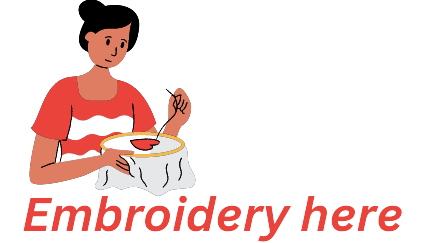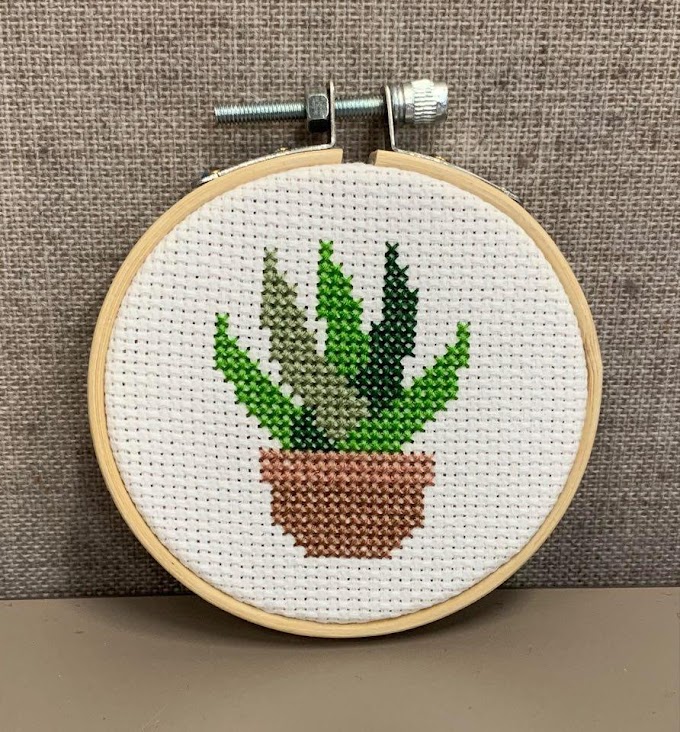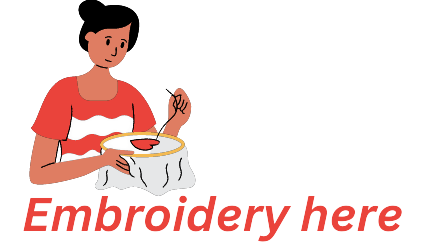Introduction:
In today's rapidly evolving career landscape, many individuals wonder if their passion for embroidery can be transformed into a sustainable profession. The question "Can embroidery be a career?" lingers, and in this article, we will delve into the world of embroidery, exploring the viable opportunities it presents for those seeking a fulfilling and prosperous professional path.
1. The Resurgence of Handcrafted Artistry: Can Embroidery Be a Viable Career Choice?
Amidst the digital age, there has been a remarkable resurgence of appreciation for handcrafted artistry. Embroidery, with its intricate threadwork and attention to detail, is no exception. Recent market statistics reveal that the global market for handmade products reached a staggering $40 billion in 2022, signaling a growing demand for unique and personalized items (source: Craft and Hobby Association, 2022). This resurgence creates an opportune environment for skilled embroiderers to turn their craft into a viable career.
2. Bridging Tradition and Innovation: Unlocking Career Potential
Embroidery is not confined to traditional patterns alone. It has evolved to encompass a wide range of styles and techniques, successfully blending tradition with innovation. The embroidery market is projected to reach $14.4 billion by 2028, with a compound annual growth rate of 4.5% (source: Grand View Research, 2021). This growth indicates the industry's adaptability and its ability to cater to evolving consumer preferences. By embracing both tradition and innovation, embroidery offers a promising career path.
3. The Rise of the Artisan Movement: Transforming Embroidery into a Profession
In a world increasingly valuing authenticity and individuality, the rise of the artisan movement has created a shift in consumer preferences. Research conducted by Etsy, a renowned online marketplace, shows that 87% of consumers prefer to purchase handmade products to support independent artists and craftspeople (source: Etsy, 2022). Embroidery, with its inherent charm and personal touch, aligns perfectly with this growing demand. This shift paves the way for embroidery to transition from a hobby to a rewarding profession.
4. Diverse Career Paths: Exploring the Possibilities
Embroidery opens the doors to diverse career paths, catering to a range of interests and skill sets. Beyond creating and selling embroidered products, individuals can explore avenues such as fashion design, costume embellishment, textile artistry, interior design, and restoration work. The U.S. Bureau of Labor Statistics projects a 6% employment growth in the arts and crafts industry from 2020 to 2030, indicating ample opportunities for skilled embroidery professionals (source: U.S. Bureau of Labor Statistics, 2021).
5. The Power of Online Platforms: Making Embroidery Careers Accessible
In the digital era, online platforms play a vital role in showcasing work and connecting with a global audience. Social media, e-commerce websites, and online marketplaces offer convenient and cost-effective means of promoting and selling embroidered products. With the global e-commerce market projected to reach $6.4 trillion in 2024 (source: Statista, 2022), establishing a strong online presence can significantly impact the success of an embroidery career. Embracing the power of online marketing can help turn passion into profit.
Conclusion:
So, can embroidery be a career? The statistics pointing to the growing market for handmade products, the projected growth of the embroidery industry, and the increasing consumer preference for artisanal goods all indicate that embroidery holds considerable potential as a profession. If you possess a passion for this exquisite craft and a determination to carve your own path, the answer is a resounding yes. Embrace the rich history and artistic possibilities of embroidery, continually develop your skills, and leverage online platforms to embark on a rewarding journey where passion meets the profession.


%20(1).webp)
%20(1).webp)
.png)


